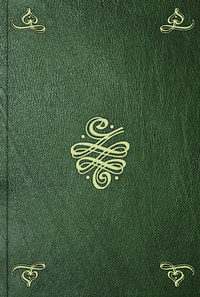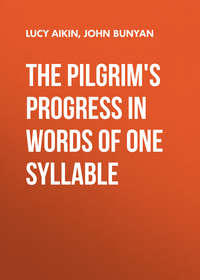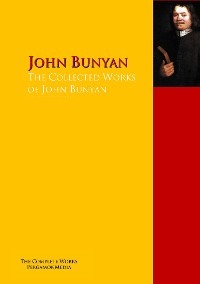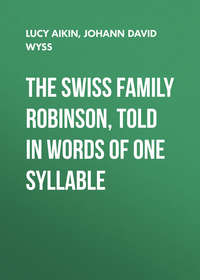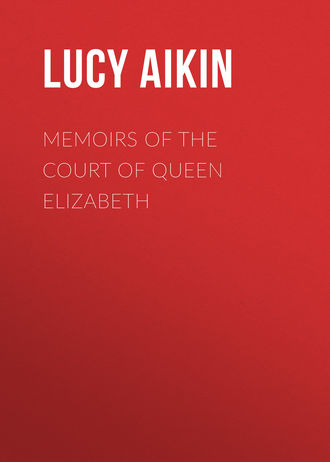 полная версия
полная версияMemoirs of the Court of Queen Elizabeth
The deportment of Mary on this trying emergency exhibited somewhat of the dignity, but more of the spirit and adroitness, for which she has been famed. She justified her negotiations, or intrigues, with foreign princes, on the ground of her inalienable right to employ all the means within her power for the recovery of that liberty of which she had been cruelly and unjustly deprived. With great effrontery she persisted in denying that she had ever entertained with Babington any correspondence whatever; and she urged that his pretending to receive, or having in fact received, letters written in her cipher, was no conclusive proof against her; since it was the same which she used in her French correspondence, and might have fallen into other hands. But finding herself hard pressed by evidence on this part of the subject, she afterwards hazarded a rash attempt to fix on Walsingham the imputation of having suborned witnesses and forged letters for her destruction. The aged minister, greatly moved by this attack upon his character, immediately rose and asserted his innocence in a manner so solemn, and with such circumstantial corroboration, as compelled her to retract the accusation with an apology.
On some mention of the earl of Arundel and lord William Howard his brother, which occurred in the intercepted letters, she sighed, and exclaimed with a feeling which did her honor, "Alas, what has not the noble house of Howard suffered for my sake!"
On the whole, her presence of mind was remarkable; though the quick sensibilities of her nature could not be withheld from breaking out at times, either in vehement sallies of anger or long fits of weeping, as the sense of past and present injuries, or of her forlorn and afflicted state and the perils and sufferings which still menaced her, rose by turns upon her agitated and affrighted mind.
The commissioners, after a full hearing, of the cause, quitted Fotheringay, and, meeting again in the Star-chamber summoned before them the two secretaries, who voluntarily confirmed on oath the whole of their former depositions: after this, they proceeded to an unanimous sentence of death against Mary, which was immediately transmitted to the queen for her approbation. On the same day a declaration was published on the part of the commissioners and judges, importing, that the sentence did in no manner derogate from the titles and honors of the king of Scots.
Most of the subsequent steps taken by Elizabeth in this unhappy business are marked with the features of that intense selfishness which, scrupling nothing for the attainment of its own mean objects, seldom fails by exaggerated efforts and overstrained manœuvres to expose itself to detection and merited contempt.
Never had she enjoyed a higher degree of popularity than at this juncture: the late discoveries had opened to view a series of popish machinations which had fully justified, in the eyes of an alarmed and irritated people, even those previous measures of severity on the part of her government which had most contributed to provoke these attempts.
The queen was more than ever the heroine of the protestant party; and the image of those imminent and hourly perils to which her zeal in the good cause had exposed her, inflamed to enthusiasm the sentiment of loyalty. On occasion of the detection of Babington's plot, the whole people gave themselves up to rejoicings. Sixty bonfires, says the chronicler, were kindled between Ludgate and Charing-Cross, and tables were set out in the open streets at which happy neighbours feasted together. The condemnation of the queen of Scots produced similar demonstrations. After her sentence had been ratified by both houses of parliament, it was thought expedient, probably by way of feeling the pulse of the people, that solemn proclamation of it should be made in London by the lord-mayor and city officers, and by the magistrates of the county in Westminster. The multitude, untouched by the long misfortunes of an unhappy princess born of the blood-royal of England and heiress to its throne,—insensible too of every thing arbitrary, unprecedented, or unjust, in the treatment to which she had been subjected, received the notification of her doom with expressions of triumph and exultation truly shocking. Bonfires were lighted, church bells were rung, and every street and lane throughout the city resounded with psalms of thanksgiving97.
It is manifest, therefore, that no deference for the opinions or feelings of her subjects compelled Elizabeth to hesitate or to dissemble in this matter.
Had she permitted the execution of the sentence simply, and without delay, all orders of men attached to the protestant establishment would have approved it as an act fully justified by state-expediency and the law of self-defence; and though misgivings might have arisen in the minds of some on cooler reflection, when alarm had subsided and the bitterness of satiated revenge had begun to make itself felt,—these "compunctious visitings" could have led to no consequences capable of alarming her. It must have been felt as highly inequitable to reproach the queen, when all was past and irrevocable, for the consent which she had afforded to a deed sanctioned by a law, ratified by the legislature and applauded by the people, and from which both church and state had reaped the fruits of security and peace. Foreign princes also would have respected the vigor of this proceeding; they would not have been displeased to see themselves spared by a decisive act the pain of making disregarded representations on such a subject; and a secret consciousness that few of their number would have scrupled under all the circumstances to take like vengeance on a deadly foe and rival, might further have contributed to reconcile them to the fact. Even as it was, pope Sixtus V. himself could scarcely restrain his expressions of admiration at the completion of so strong a measure as the final execution of the sentence: his holiness had indeed a strange passion for capital punishments, and he is said to have envied the queen of England the glorious satisfaction of cutting off a royal head:—a sentiment not much more extraordinary from such a personage, than the ardent desire which he is reported to have expressed, that it were possible for him to have a son by this heretic princess;
because the offspring of such parents could not fail, he said, to make himself king of the world.
But it was the weakness of Elizabeth to imagine, that an extraordinary parade of reluctance, and the interposition of some affected delays, would change in public opinion the whole character of the deed which she contemplated, and preserve to her the reputation of feminine mildness and sensibility, without the sacrifice of that great revenge on which she was secretly bent. The world, however, when it has no interest in deceiving itself, is too wise to accept of words instead of deeds, or in opposition to them; and the sole result of her artifices was to aggravate in the eyes of all mankind the criminality of the act, by giving it rather the air of a treacherous and cold-blooded murder, than of solemn execution done upon a formidable culprit by the sentence of offended laws. The parliament which Elizabeth had summoned to partake the odium of Mary's death, met four days after the judges had pronounced her doom, and was opened by commission. An unanimous ratification of the sentence by both houses was immediately carried, and followed by an earnest address to her majesty for its publication and execution; to which she returned a long and labored answer.
She began with the expression of her fervent gratitude to Providence for the affections of her people; adding protestations of her love towards them, and of her perfect willingness to have suffered her own life still to remain exposed as a mark to the aim of enemies and traitors, had she not perceived how intimately the safety and well-being of the nation was connected with her own. With regard to the queen of Scots, she said, so severe had been the grief which she had sustained from her recent conduct, that the fear of renewing this sentiment had been the cause, and the sole cause, of her withholding her personal appearance at the opening of that assembly, where she knew that the subject must of necessity become matter of discussion; and not, as had been suggested, the apprehension of any violence to be attempted against her person;—yet she might mention, that she had actually seen a bond by which the subscribers bound themselves to procure her death within a month.
So far was she from indulging any ill will against one of the same sex, the same rank, the same race as herself,—in fact her nearest kinswoman,—that after having received full information of certain of her machinations, she had secretly written with her own hand to the queen of Scots, promising that, on a simple confession of her guilt in a private letter to herself, all should be buried in oblivion. She doubted not that the ancient laws of the land would have been sufficient to reach the guilt of her who had been the great artificer of the recent treasons; and she had consented to the passing of the late statute, not for the purpose of ensnaring her, but rather to give her warning of the danger in which she stood. Her lawyers, from their strict attachment to ancient forms, would have brought this princess to trial within the county of Stafford, have compelled her to hold up her hand at the bar, and have caused twelve jurymen to pass judgement upon her. But to her it had appeared more suitable to the dignity of the prisoner and the importance of the cause to refer the examination to the judges, nobles, and counsellors of the realm;—happy if even thus she could escape that ready censure to which the conspicuous station of sovereigns on all occasions exposed them.
The statute, by requiring her to pronounce judgement upon her kinswoman, had involved her in anxiety and difficulties. Amid all her perils, however, she must remember with gratitude and affection the voluntary association into which her subjects had entered for her defence. It was never her practice to decide hastily on any matter; in a case so rare and important some interval of deliberation must be allowed her; and she would pray Heaven to enlighten her mind, and guide it to the decision most beneficial to the church, to the state, and to the people.
Twelve days after the delivery of this speech, her majesty sent a message to both houses, entreating that her parliament would carefully reconsider the matter, and endeavour to hit upon some device by which the life of the queen of Scots might be rendered consistent with her own safety and that of the country. Her faithful parliament, however, soon after acquainted her, that with their utmost diligence they had found it impracticable to form any satisfactory plan of the kind she desired; and the speakers of the two houses ended a long representation of the mischiefs to be expected from any arrangement by which Mary would be suffered to continue in life, with a most earnest and humble petition, that her majesty would not longer deny to the united wishes and entreaties of all England, what it would be iniquitous to refuse to the meanest individual; the execution of justice.
Elizabeth, after pronouncing a second long harangue designed to display her own clemency, to upbraid the malice of her libellers, and to refute the suspicion, which her conscience no doubt helped her to anticipate, that all this irresolution was but feigned, and that the decisions of the two houses were influenced by a secret acquaintance with her wishes,—again dismissed their petitions without any positive answer. Soon after, however, she permitted herself to authorize the proclamation of the sentence, and sent lord Buckhurst, and Beal clerk of the council, to announce it to Mary herself.
During the whole of this time, the kings of France and of Scotland were interceding by their ambassadors for the pardon of the illustrious prisoner. How the representations of Henry III. were received, we do not find minutely recorded; but Elizabeth knew that they might be safely disregarded: that monarch was himself too much a sufferer by the arrogance and ambition of the house of Guise, to be very strenuous in his friendship towards any one so nearly connected with it; and it is even said that, while a sense of decorum extorted from him in public some energetic expressions of the interest taken by him in the fate of a sister-in-law and queen-dowager of France, a sentiment of regard for Elizabeth, his friend and ally, prompted him to counsel her, through a secret agent, to execute the sentence with the least possible delay. Of the treatment experienced by the master of Gray, the envoy of James, we gain some particulars from an original memorial drawn up by himself.
He appears to have reached Ware on December 24th, whence he sent to desire Keith and Douglas, the resident Scotch ambassadors, to announce to the queen his approach; and she voluntarily promised that the life of Mary should be spared till his proposals were heard. His reception in London was somewhat ungracious;—no one was sent to welcome or convoy him, and it was ten days before he and sir Robert Melvil his coadjutor were admitted to an audience. Elizabeth's first address to them was, "A thing long looked for should be welcome when it comes; I would now see your master's offers." Gray desired first to be assured that the cause for which those offers were made was "still extant;" that is, that the life of Mary was still safe, and should be so till their mission had been heard. She answered, "I think it be extant yet, but I will not promise for an hour." They then brought forward certain proposals, not here recited, which she rejected with contempt; and calling in Leicester, the lord-admiral, and Hatton, "very despitefully" repeated them in hearing of them all. Gray then propounded his last offer:—that the queen of Scots should resign all her claims upon the English succession to her son, by which means the hopes of the papists would, as he said, be cut off. The terms in which this overture was made Elizabeth affected not to understand; Leicester explained their meaning to be, that the king of Scots should be put in his mother's place. "Is it so?" the queen answered; "then I put myself in a worse case than before:—By God's passion, that were to cut my own throat; and for a duchy or an earldom to yourself, you, or such as you, would cause some of your desperate knaves to kill me. No, by God, he shall never be in that place!" Gray answered, "He craves nothing of your majesty, but only of his mother." "That," said Leicester, "were to make him party (rival or adversary) to the queen my mistress." "He will be far more party," replied Gray, "if he be in her place through her death." Her majesty exclaimed, that she should not have a worse in his mother's place, and added; "Tell your king what good I have done for him in holding the crown on his head since he was born, and that I mind (intend) to keep the league that now stands between us, and if he break it, it shall be a double fault." With this speech she would have left them; but they persisted in arguing the matter further, though in vain. Gray then requested that Mary's life might be spared for fifteen days; the queen refused: sir Robert Melvil begged for only eight days; she said not for an hour, and so quitted them.
After this, the Scotch ambassadors assumed a tone of menace: but the perfidious Gray secretly fortified Elizabeth's resolution with the proverb, "The dead cannot bite;" and undertook soon to pacify, in any event, the anger of his master, whose minion he at this time was.
No sooner had Elizabeth silenced with this show of inflexibility all the pleadings or menaces by which others had attempted to divert her from her fatal aim, than she began, as in the affair of the French marriage, to feel her own resolution waver. It appears unquestionable that to affected delays a real hesitation succeeded. When her pride was no longer irritated by opposition, she had leisure to survey the meditated deed in every light; and as it rose upon her view in all its native deformity, anxious fears for her own fame and credit, yet untainted by any crime, and perhaps genuine scruples of conscience, forcibly assailed her resolution. But her ministers, deeply sensible that both she and they had already gone too far to recede with reputation or with safety, encountered her growing reluctance with a proportional increase in the vehemence of their clamors for what they called, and perhaps thought, justice. All the hazards to which her excess of clemency might be imagined to expose her, were conjured up in the most alarming forms to repel her scruples. A plot for her assassination was disclosed, to which the French ambassador was ascertained to have been privy;—rumors were raised of invasions and insurrections; and it may be suspected that the queen, really alarmed in the first instance by the representations of her council, voluntarily contributed afterwards to keep up these delusions for the sake of terrifying the minds of men into an approval of the deed of blood.
At length, on February 1st 1587, her majesty ordered secretary Davison to bring her the warrant, which had remained ready drawn in his hands for some weeks; and having signed it, she told him to get it sealed with the great seal, and in his way to call on Walsingham and tell him what she had done; "though," she added smiling, "I fear he will die of grief when he hears of it;"—this minister being then sick. Davison obeyed her directions, and the warrant was sealed. The next day he received a message from her, purporting that he should forbear to carry the warrant to the lord keeper till further orders. Surprised and perplexed, he immediately waited upon her to receive her further directions; when she chid him for the haste he had used in this matter, and talked in a fluctuating and undetermined manner respecting it which greatly alarmed him. On leaving the queen, he immediately communicated the circumstances to Burleigh and Hatton; and thinking it safest for himself to rid his hands of the warrant, he delivered it up to Burleigh, by whom it had been drawn and from whom he had at first received it. A council was now called, consisting of such of the ministers as either the queen herself or Davison had made acquainted with the signing of the warrant; and it was proposed that, without any further communication with her majesty, it should be sent down for immediate execution to the four earls to whom it was directed.
Davison appears to have expressed some fears that he should be made to bear the blame of this step; but all his fellow-councillors then present joined to assure him that they would share the responsibility: it was also said, that her majesty had desired of several that she might not be troubled respecting any of the particulars of the last dismal scene; consequently it was impossible that she could complain of their proceeding without her privity. By these arguments Davison was seduced to give his concurrence; and Beal, a person noted for the vehemence of his attachment to the protestant cause and to the title of the countess of Hertford, was dispatched with the instrument; in obedience to which Mary underwent the fatal stroke on February 8th.
The news of this event was received by Elizabeth with the most extraordinary demonstrations of astonishment, grief, and anger. Her countenance changed, her voice faltered, and she remained for some moments fixed and motionless; a violent burst of tears and lamentations succeeded, with which she mingled expressions of rage against her whole council. They had committed, she said, a crime never to be forgiven; they had put to death without her knowledge her dear kinswoman and sister, against whom they well knew that it was her fixed resolution never to proceed to this fatal extremity. She put on deep mourning, kept herself retired among her ladies abandoned to sighs and tears, and drove from her presence with the most furious reproaches such of her ministers as ventured to approach her. She caused several of the councillors to be examined as to the share which they had taken in this transaction. Burleigh was of the number; and against him she expressed herself with such peculiar bitterness that he gave himself up for lost, and begged permission to retire with the loss of all his employments. This resignation was not accepted; and after a considerable interval, during which this great minister deprecated the wrath of his sovereign in letters of penitence and submission worthy only of an Oriental slave, she condescended to be reconciled to a man whose services she felt to be indispensable.
But the manes of Mary, or the indignation of her son, could not be appeased, it seems, without a sacrifice; and a fit victim was at hand. From some words dropped by lord Burleigh on his examination, it had appeared that it was the declaration of Davison respecting the sentiments of the queen, as expressed to himself, which had finally decided the council to send down the warrant; and on this ground proceedings were instituted against the unfortunate secretary. He was stripped of his office, sent to the Tower in spite of the warm and honest remonstrances of Burleigh, and after several examinations subjected to a process in the Star-chamber for a twofold contempt. First, in revealing her majesty's counsels to others of her ministers;—secondly, in giving up to them an instrument which she had committed to him in special trust and secrecy, to be kept in case of any sudden emergency which might require its use.
Davison demanded that his own examination, which with that of Burleigh formed the whole evidence against him, should be read entire, instead of being picked and garbled by the crown lawyers; but this piece of justice the queen's counsel refused him, on the ground that they contained matter unfit to be divulged. He was found guilty, and sentenced to a fine of ten thousand marks and imprisonment during the queen's pleasure, by judges who at the same time expressed a high opinion both of his abilities and his integrity, and who certainly regarded his offence as nothing more than an error of judgement or want of due caution. Elizabeth ordered a copy of his sentence to be immediately transmitted to the king of Scots, as triumphant evidence of that perfect innocence in the tragical accident of his mother's death, of which she had already made solemn protestation. James complied so far with obvious motives of policy as to accept her excuses without much inquiry; but impartial posterity will not be disposed to dismiss so easily an important and curious investigation which it possesses abundant means of pursuing. The record of Burleigh's examination is still extant, and so likewise is Davison's apology; a piece which was composed by himself at the time and addressed to Walsingham, who could best judge of its accuracy; and which after being communicated to Camden, who has inserted an extract from it in his Annals, has at length been found entire among the original papers of sir Amias Paulet. From this authentic source we derive the following very extraordinary particulars.
It was by the lord-admiral that the queen first sent a message to Davison requiring him to bring the warrant for her signature; after subscribing it, she asked him if he were not heartily sorry it were done? to which he replied by a moderate and cautious approval of the act. She bade him tell the chancellor when he carried the warrant to be sealed, that he must "use it as secretly as might be." She then signed other papers which he had brought; dispatching them all "with the best disposition and willingness that could be." Afterwards she recurred to the subject; mentioned that she had delayed the act so long that the world might see "that she had not been violently or maliciously drawn unto it;" but that she had all along perceived the necessity of it to her own security. She then said, that she would have it done as secretly as might be, and not in the open court or green of the castle, but in the hall. Just as Davison was gathering up his papers to depart, "she fell into some complaint of sir Amias Paulet and others that might have eased her of this burthen;" and she desired that he would yet "deal with secretary Walsingham to write jointly to sir Amias and sir Drue Drury to sound them in this matter; "aiming still at this, that it might be so done as the blame might be removed from herself." This nefarious commission Davison strangely consented to execute, though he declares that he had always before refused to meddle therein "upon sundry of her majesty's motions,"—as a thing which he utterly disapproved; and though he was fully persuaded that the wisdom and integrity of sir Amias would render the application fruitless. The queen repeated her injunctions of secrecy in the matter, and he departed.


